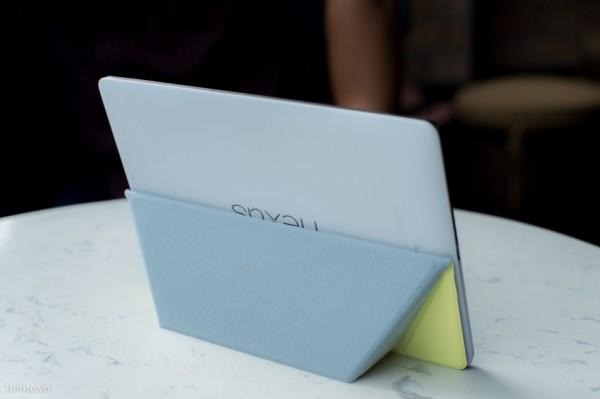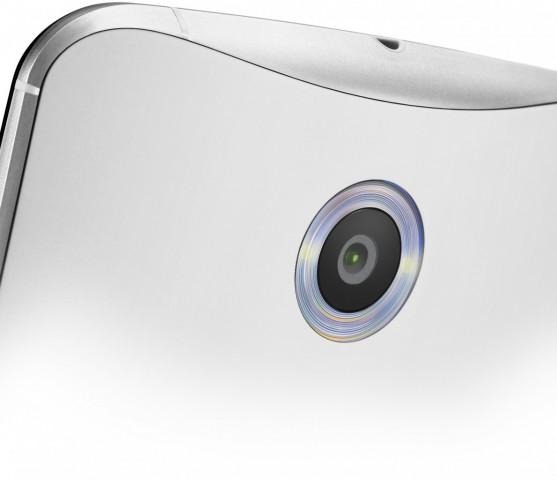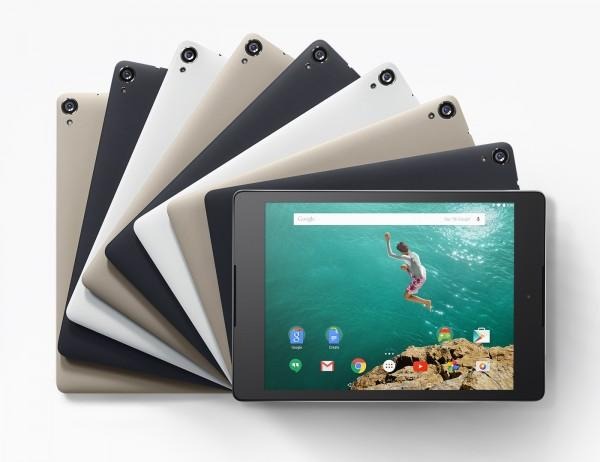Is Nexus Too Big And Expensive, Now?
The Nexus 6 smartphone and Nexus 9 tablet are official, and available for scrutiny via the Play Store. The two newest flagship devices from Google are also big; bigger than the devices they replace. Are they too big, though? Is the price Google is asking too much? Both new Nexus represent a new direction for the platform, but has Google turned some fans off? A lot of criticism has been levied against them for these two big, more-expensive-than-your-usual-Nexus devices — but is it fair?
The Nexus 6 is big — almost too big to be called a smartphone. With a 6-inch screen, the device simply won't fit in one hand easily for many users. Made by Motorola, it'll be solidly manufactured, but it also copies the Moto X is form factor (even though it's bigger). That's also not going to lend the Nexus 6 to being light or amazingly thin.
The curvature around back will aid in the comfort of holding it, but trying to do things one-handed is going to be a chore.
At $649, the price is gasp-inducing for Nexus. We're used to $400 or so from a smartphone available from Google Play, so this OEM and carrier favoring price-tag is a shock to the system.
The Nexus 6 is big, and pricey, but it's not DOA.

Nexus 9 also checks into a new weight-class for Google's flagship tablet focus. Replacing both the Nexus 7 and long-forgotten Nexus 10, the Nexus 9 straddles the line between the two. Not a tiny dynamo like the Nexus 7, and definitely not a "full sized" tablet like the Nexus 10 was, the Nexus 9 brings Google into focus with the iPad mini.
Google's Nexus 9 is a response to consumer wants. It also brings HTC back to the tablet fold, which is something I can get behind 100%. If the HTC One (M8) is any indication, the Nexus 9 build quality is going to blow you away.
Like the Nexus 6, Google's Nexus 9 is bigger and more expensive. Like the Nexus 6, it represents a new direction for Google's Nexus line, but absolutely does not signify any trouble.
There are a lot of things going unsaid with Nexus in 2014-2015. The Nexus 9 "is what it is", and we should be celebrating HTC's return to tablet form, as well as Boomsound on a screen appropriate for watching movies on the go. The bigger screen is going to surprise a lot of people who may not think they'll like it. As for not giving us a tablet at a price we've come to expect from Nexus, that lines right up with the Nexus 6, which we'll get to.

At a starting price of $649, the Nexus 6 appeals to Motorola and carriers. Everyone can enjoy the spoils of a device that — in spite of the availability you see on the Play Store hours after it becomes available — doesn't sell that well. Android fragmentation numbers after the launch of any new Nexus device prove as much.
The last Nexus device available on Verizon was the Galaxy Nexus, and what a cluster-you-know-what that was. It cost more via Verizon, was barely supported, and just plain lacked energy.
By ditching that tiered pricing model, Google thumbed their nose at (most) carrier involvement. A $649 phone lets carriers make a bit of money form device sales, and gets Google back into formal relationships with each carrier.
The $649 price tag evens the playing field, and though it's nowhere near what we expected (because let's not kid around, here, we all expected a much lower price), it's good for everyone involved. Google gets a flagship, Motorola and the carriers make money on device sales, and consumers end up with a great device.

The Nexus 9? Same thing. Google gets a flagship tablet, and HTC earns some revenue. They also get right back into the tablet game, and diversify their product portfolio. Slowly but surely, HTC is rising from their bed of ashes. Google is just plain helping everyone this year.
Making no excuses, I'll say I was hoping these products would be different. I have no desire for a 6-inch smartphone, and my iPad suits me just fine. I love stock Android, but I'm not interested in the Nexus 6. Other phones are out there, ready to take the low-price/high spec throne, so if that's your thing — check them out. And hey, the Nexus 5 is sticking around, too, if you want last year's model.
Nexus isn't dead, or dying. It's just different. Like it or not, the days of cheap Nexus stuff might be over. If the tradeoff ends up being happier carriers willing to partner with Google on stock Android and OEMs who stave off bankruptcy, though — I can't condemn it.
I just don't have to buy it.
